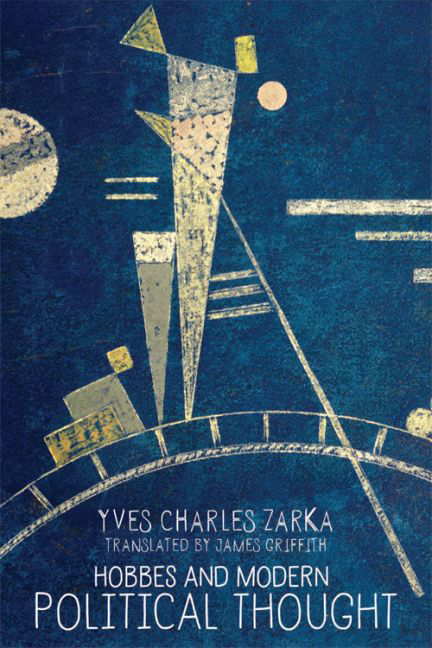Book contents
- Frontmatter
- Contents
- Translator's Introduction
- Foreword
- 1 Journey: To the Foundations of Modern Politics
- Part I Individual and State
- Part II Language and Power [Pouvoir]
- Part III Fundamental Concepts of Politics
- 6 On War
- 7 On Law
- 8 On Property
- 9 On the State
- 10 On the Right to Punish
- Part IV Hobbes According to Two Contemporaries
- Conclusion
- Bibliography
- Index
6 - On War
from Part III - Fundamental Concepts of Politics
Published online by Cambridge University Press: 23 September 2017
- Frontmatter
- Contents
- Translator's Introduction
- Foreword
- 1 Journey: To the Foundations of Modern Politics
- Part I Individual and State
- Part II Language and Power [Pouvoir]
- Part III Fundamental Concepts of Politics
- 6 On War
- 7 On Law
- 8 On Property
- 9 On the State
- 10 On the Right to Punish
- Part IV Hobbes According to Two Contemporaries
- Conclusion
- Bibliography
- Index
Summary
THE STATE OF NATURE: MISINTERPRETATION OR MODEL?
The specific contribution of Hobbes's philosophy for a thought of war stems from what it creates with the concept of the state of war and, for close to two centuries of political thought, a tradition that is simultaneously distinguished from the theologico-juridical tradition of just war and from the tactical and strategic tradition of the art of war. However, the historical repercussion of a concept cannot single-handedly guarantee semantic value. Better, we can legitimately ask ourselves if the Hobbesian concept of state of war does not cover a misinterpretation, both the specious character – ‘there is no war between men: it is only between states’ – and the function of justification – ‘Who could have imagined without shuddering the insane system of natural war of each against all? What a strange animal this is that would believe its own good depended upon the destruction of its entire species! … Nevertheless, that is where the desire or rather the rage for establishing despotism and passive obedience have led one of the finest geniuses that ever existed’ – of which Rousseau will vehemently denounce. Certainly, Rousseau does not reject the concept of state of war as such, but the form of a war of all against all that Hobbes gives to it. It is thus the pertinence and the originality of the Hobbesian concept that it is a question of re-establishing. For, on the one hand, if it is true that the state of war defines first of all the contentious relations between men in the state of nature, it constitutes above all a model for rendering account of every kind of war, interindividual war as much as international war and subversive war. On the other hand, the state of interindividual war is far from being reduced to a state of pure violence. The act of violence is always temporary, the state of war is permanent, Hobbes says before Rousseau. Yet this distinction can be justified only because the dynamics of human behaviours within the state of nature is a dynamics of signs, and not only of force, or the act of violence: ‘To kill his man’ itself appears as a sign.
- Type
- Chapter
- Information
- Hobbes and Modern Political Thought , pp. 107 - 122Publisher: Edinburgh University PressPrint publication year: 2016



